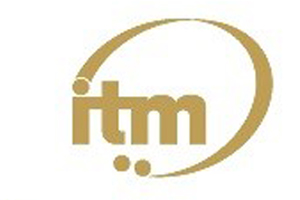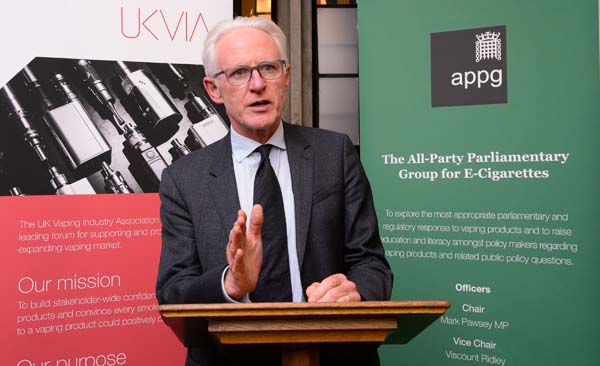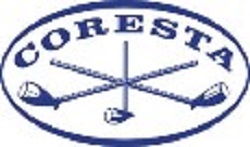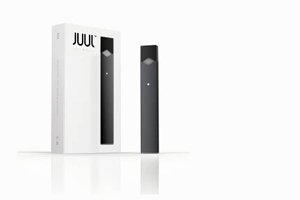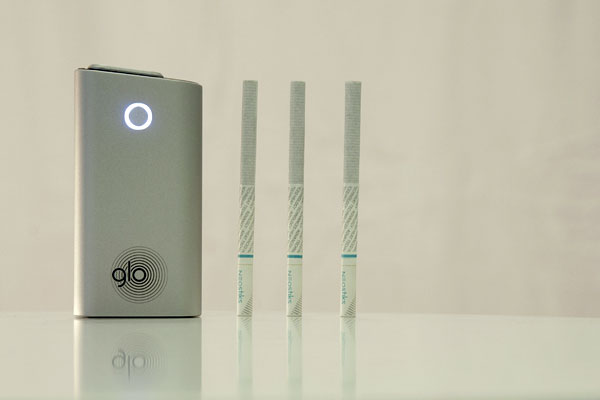Electronic-cigarette campaigners have headed to Australia’s capital Canberra to convince federal politicians to lift bans on nicotine vaping products, according to a story by Michael Black at abc.net.au.
A recent CSIRO [Commonwealth Scientific and Industrial Research Organisation, an independent Australian federal government agency responsible for scientific research] report found regular use of vaping devices was likely to harm a person’s health, but it suggested there were likely benefits in replacing regular cigarettes with e-cigarettes.
Brian Marlow, the campaign manager for Legalise Vaping Australia, said the report quantified points his organization had been making for years.
“They’ve shown the gateway theory, that vaping leads to smoking, just doesn’t exist; they’ve shown that vaping reduces smoking rates; they’ve shown that it’s safer than smoking,” he said.
“This is not a harmless technology, it’s just significantly less harmful than tobacco and that’s what we’re trying to get across.”
Currently, there are various bans across Australia that restrict the sale of e-cigarettes and liquids containing nicotine.
Many vapers purchase products online and some don’t know that it’s technically illegal to do so.
Category: Technology

The evidence is in
Switching to vaping
The Serendipitymommy.com website is offering some advice on switching from smoking to vaping that could be useful to a wider audience than perhaps the website normally attracts.
It gives, among other things, five tips for making the switch:- Invest in a better device because one of the most common reasons why vapers have difficulty completely giving up tobacco cigarettes is down to the type of device that they are using.
- Find the right balance because, when choosing your ‘kit’, the trick is to strike the right balance between ease of use and an experience that provides the satisfaction that you need.
- Explore new flavors by thinking about what flavors you like in other products, because there’s bound to be a suitable vape juice for you.
- Give yourself time to make the adjustment once you have chosen your kit and flavors.
- Consider dual use because many vapers don’t make a straight switch immediately.

ITMGroup now 12 companies
Thomas Automation Management (TAM) has joined ITMGroup.
TAM will operate as an independent company within the group, continuing to serve its customers as a provider of automation solutions and technical services. TAM’s current management will continue to manage the business from its existing location in Woodlawn, Virginia, USA.
“This merge is the natural progression of our eight-year relationship with ITMGroup”, says Ricky Thomas, CEO of TAM. “Our common customers in the tobacco industry will definitely benefit from the combined experience of our two companies. TAM is very excited to be part of a strong and well-respected group, with such a rich history.”
“We are proud to have such a capable representation in this part of the world for services and upgrades, close to our main customers in the tobacco industry,” says Arend van der Sluis, chairman of the board of ITMGroup.
“TAM’s strong innovative spirit is a great fit to our group and over the past years, many colleagues from TAM have mastered the most advanced machines of our portfolio, such as Capricorn, Saturn, Gemini, Polaris and Solaris,” says Van der Sluis.
“The TAM team have installed and serviced these machines not only in the U.S., but across the globe. This is a very solid base to deploy new projects together, both in the combustible area as in the area of next-generation products.”
TAM was established in 2010 and has become a regional provider of automation integration services in a variety of U.S. industries, including tobacco. From the beginning, TAM has worked closely with ITMGroup on multiple projects.
Following the addition of TAM, ITMGroup comprises 12 companies, with 22 sites and service centers worldwide. Headquartered in Kampen, the Netherlands, ITMGroup now employs more than 1200 people.

Harm reduction within reach
Members of parliament have warned the UK Government that misconceptions about electronic cigarettes mean that it is missing an opportunity to tackle a major cause of death.
In a press note issued today alongside its report, E-cigarettes, the House of Commons Science and Technology Committee said that these products, estimated to be 95 percent less harmful than conventional cigarettes, were too often being overlooked as a stop-smoking tool by the National Health Service (NHS).
‘Regulations should be relaxed relating to e-cigarettes’ licensing, prescribing and advertising of their health benefits,’ the note said. ‘Their level of taxation and use in public places must be reconsidered.’
In what will be seen by many as one of its most important interventions, the Committee said that it believed the risk for smokers of continuing to use conventional cigarettes was greater than the uncertainty over the long-term use of e-cigarettes. ‘To gather independent health-related evidence on e-cigarettes and heat-not-burn products, the Committee is calling on the Government to support a long-term research programme overseen by Public Health England and the Committee on Toxicity of Chemicals in Food, Consumer Products and the Environment,’ the note said. ‘The Government should make its research available to the public and to health professionals.’
The chair of the Committee, Norman Lamb MP (pictured in 2017), said smoking remained a national health crisis and the Government should be considering innovative ways of reducing the smoking rate. “E-cigarettes are less harmful than conventional cigarettes, but current policy and regulations do not sufficiently reflect this and businesses, transport providers and public places should stop viewing conventional and e-cigarettes as one and the same,” he said. “There is no public health rationale for doing so.
“Concerns that e-cigarettes could be a gateway to conventional smoking, including for young non-smokers, have not materialised. If used correctly, e-cigarettes could be a key weapon in the NHS’s stop smoking arsenal.”
The Committee is recommending that:- ‘The Government, the MHRA (Medicines and Healthcare products Regulatory Agency) and the e-cigarette industry should review how approval systems for stop smoking therapies could be streamlined should e-cigarette manufacturers put forward a product for medical licensing.
- ‘There should be a wider debate on how e-cigarettes are to be dealt with in our public places, to help arrive at a solution which at least starts from the evidence rather than misconceptions about their health impacts.
- ‘The Government should continue to annually review the evidence on the health effects of e-cigarettes and extend that review to heat-not-burn products. Further it should support a long-term research programme overseen by Public Health England and the Committee on Toxicity of Chemicals in Food, Consumer Products and the Environment with an online hub making evidence available to the public and health professionals.
- ‘The limit on the strength of refills should be reviewed as heavy smokers may be put off persisting with them — and the restriction on tank size does not appear to be founded on scientific evidence and should therefore urgently be reviewed.
- ‘The prohibition on making claims for the relative health benefits of stopping smoking and using e-cigarettes instead has prevented manufacturers informing smokers of the potential benefits and should be reviewed to identify scope for change post-Brexit.
- ‘There should be a shift to a more risk-proportionate regulatory environment; where regulations, advertising rules and tax duties reflect the evidence of the relative harms of the various e-cigarettes, heat-not-burn and tobacco products available.
- ‘NHS England should set a policy of mental health facilities allowing e-cigarette use by patients unless trusts can demonstrate evidence-based reasons for not doing so.
- ‘The Government should review the evidence supporting the current ban on snus as part of a wider move towards a more risk aware regulatory framework for tobacco and nicotine products.’
In welcoming the report, the UK’s New Nicotine Alliance (NNA) said that it contained several evidence-based policy proposals that would positively transform the way vaping was viewed by businesses, institutions and the public alike.
It said that it ‘warmly welcomes this report for its clear and unequivocal message that e-cigarettes and other alternative nicotine products are far safer than combustible tobacco and should be treated as such’.
“E-cigarettes are a proven safer alternative to smoking and the UK boasts 1.5 million former smokers who have converted from combustible tobacco to exclusively vaping instead,” said Sarah Jakes, the NNA chair. “The Science and Technology Committee has wisely recognised that misconceptions about e-cigarettes are threatening further progress in encouraging their use by smokers who choose to quit.
“We welcome the Committee’s call for a root and branch review of how risk-reduced products are treated by businesses, institutions and government itself. The report is a beacon of enlightenment in an area of public health which is often burdened by dogma and outdated thinking towards the use of nicotine…”
Jakes said also that there was a lot of confusion about e-cigarettes among the public, health institutions and businesses; so the report was timely and could have hugely positive implications for public health if its recommendations were implemented in full.
“Sir Norman’s Committee has done an excellent job of peering through the mist of misunderstanding surrounding e-cigarettes and its policy proposals can go a long way to dispel the – often deliberately fabricated – misconceptions that are deterring many thousands of smokers from switching,” she said. “We would urge the government to read the Committee’s findings carefully and act on them without delay”
Commenting on the report, the Vaping Industry Association (UKVIA) said that, following an extensive inquiry into e-cigarettes, the Committee had concluded that the government was missing significant opportunities to tackle UK smoking rates.
The UKVIA highlighted that the Committee had urged the government to consider tax breaks for vaping products; to allow wider use of vaping in public places; and to create a streamlined route to medically licenced vaping products.
It pointed out too that the report called on the government to reconsider the regulations around e-cigarette packaging and advertising. ‘Advertising rules currently prevent the industry from making health claims comparing vaping to smoking,’ said the UKVIA. ‘The Committee believes this is stopping UK smokers (almost seven million), from making informed decisions about switching to vaping …’
The report said also that restrictions on nicotine strength, tank size and bottles was not founded on scientific evidence and should be urgently reviewed.
“The Science and Technology Committee report is a ringing endorsement of vaping’s public health potential,” said John Dunne, who appeared before the Committee on behalf of the UKVIA.
“They are absolutely right that advertising restrictions are preventing smokers from hearing the truth. More and more people wrongly believe vaping to be more harmful or as harmful as smoking. This is a direct consequence of advertising restrictions that prevent the industry from telling smokers that vaping is 95 percent less harmful. If health bodies can say it, why can’t we?
“The industry is pleased to see the Committee recognise the nonsensical packaging and nicotine strength regulations, that only hamper vaping’s potential appeal to smokers looking for an alternative.”
Newsletter published
The CORESTA (Co-operation Centre for Scientific Research Relative to Tobacco) Secretariat has advised that the organization’s latest newsletter has been published and is available for download at the CORESTA website.
Issue 51 of the newsletter includes:- Information on the October 2018 CORESTA Congress in Kunming, China, including details about the venue, the program, the General Assembly and elections, and a special meeting on heated-tobacco products.
- Descriptions of the five workshops to be held during the Congress.
- Reports by the organization’s sub-Groups on Physical Test Methods and Cigar Smoking Methods.
- Outlines of CORESTA presentations at external events.
- A report on a visit to the Zimbabwe Tobacco Research Board’s Kutsaga Research Station.
- Details on the launch of a new CORESTA project on sustainability
- A report on the most recent CORESTA Scientific Commission and Board meetings held in June.
- A list of recently-published CORESTA technical reports, guides and new projects launched.
- Dates of upcoming CORESTA meetings.

Israel looks to ban Juul
The Israeli Ministry of Health has come out in favor of banning the marketing of the e-cigarette Juul, according to a story by Adrian Filut and Lilach Baumer for Calcalist, quoting officials at the ministry.
The decision about whether such a ban is introduced now hinges on its receiving a stamp of approval from the country’s attorney general.
A report in the Ha’aretz newspaper, meanwhile, suggested that the ban would apply to ‘nicotine-rich electronic cigarettes like [presumably meaning such as] the popular Juul’.
The Calcalist story said that sales of Juul, which was launched initially in the US in 2015, had gained momentum during the past 12 months. ‘According to a CNBC article citing data by market research firm Nielsen published Saturday, Juul’s sales have shot up almost 800 percent over the past year and the company now controls around 71 percent of the US e-cigarette market,’ it said.
Juul was launched in Israel in May and in the UK in July. The product’s consumable pods sold in Israel are rated at 5 percent nicotine, while those sold in the UK are rated at 1.7 percent, to comply with European regulations.
Grant Winterton, Juul Labs’ president for Europe, the Middle East and Africa, told Reuters last month that the UK had been chosen as Juul’s third market after the US and Israel, partly because it had the world’s “most supportive government” when it came to encouraging smokers to vape. Also on the radar were said to be France, Germany and Italy.
Israel, on the other hand, seems opposed to reduced-risk products in general. In March, the Knesset’s Finance Committee approved a measure to tax heated-tobacco products such as Philip Morris International’s IQOS at 65 percent of the retail price, in line with the tax on cigarettes.
Regulating innovation away
Juul Labs Inc., maker of the US’ top-selling electronic cigarette, Juul, is attempting to use Bluetooth technology to limit youth usage of its products, according to a TechBeast story.
However, the strategy is unlikely to be rolled out domestically for years since it would require Juul Labs to complete a daunting Food and Drug Administration regulatory review.
“We are actively evaluating new technologies and features to help keep Juul out of the hands of young people,” the company said in a statement issued on Friday.
And Kevin Burns, the company’s chief executive, told Bloomberg News that “we’re not a lifestyle brand, we’re a functional product. We don’t want the product to seem cool.”Unauthorized risk reduction
Six leading public health and medical organizations yesterday urged the US Food and Drug Administration (FDA) ‘to stop the sale of new electronic cigarette products that have been illegally introduced in recent months without the agency’s prior review and authorization,’ according to a note posted on the website of the Campaign for Tobacco Free Kids, one of the signatories.
‘These include numerous products similar to the Juul e-cigarettes that have become wildly popular with teens across the United States,’ said the Campaign note.
‘The groups sending a letter to FDA Commissioner Scott Gottlieb are the Campaign for Tobacco-Free Kids, American Academy of Pediatrics, American Cancer Society Cancer Action Network, American Heart Association, American Lung Association and Truth Initiative. The letter was accompanied by images of the new e-cigarettes.
‘Over the last year, the use of Juul has skyrocketed among youth across the country, as commissioner Gottlieb has acknowledged and reports by news media and educators have documented. It is about to happen again.’
The Campaign then quoted Gottlieb as writing in a blog post last week that the agency had become aware of reports that some companies might be marketing new products that were introduced after the FDA’s compliance period and that have not gone through premarket review. ‘These products are being marketed both in violation of the law and outside of the FDA’s announced compliance policies,’ Gottlieb was quoted as saying. ‘We take these reports very seriously. Companies should know that the FDA is watching and we will take swift action wherever appropriate.’
The Campaign said the FDA had the tools to prevent this from happening. ‘The FDA’s 2016 rule extending its authority to e-cigarettes (called the “deeming rule”) prohibits the introduction of any new product after August 8, 2016, unless the manufacturer files a premarket review application with the FDA and the FDA issues an order authorizing the marketing of the product,’ it said. ‘While the FDA delayed this review requirement until 2022 for e-cigarettes that were already on the market as of August 8, 2016, the premarket review requirement still applies to new or changed products introduced after August 8, 2016, and it is those products that this letter addresses.’
The Campaign complained that, despite this requirement, manufacturers had recently introduced numerous new e-cigarette products without any evidence that they had filed premarket applications or received marketing orders from the FDA. ‘These include products that look like and seek to capitalize on the success of Juul, which is sleek, high-tech and easy to hide (it looks like a USB flash drive), comes in sweet flavors including mango and fruit medley, and delivers a powerful dose of nicotine,’ the Campaign said.
‘Manufacturers that have recently introduced or announced Juul-like products include big tobacco companies Altria (with its MarkTen Elite product), ITG Brands (with myblu) and R.J. Reynolds (with its recently-announced Vuse Alto). Similar products introduced by independent manufacturers include Kandy Pens’ Rubi, MLV’s PHIX and Mylé Vapor’s Mylé.’
In their letter, the health groups complained that manufacturers of e-cigarettes had introduced new products at an ‘alarming pace’ in total defiance of the law, with no apparent concern for FDA enforcement. ‘We urge FDA to take quick and aggressive action to enforce the law before one or more of these products become the next Juul phenomenon among our nation’s youth,’ the letter apparently stated.
Meanwhile, the Campaign said that, in April, the same six organizations had urged the FDA ‘to take action to address Juul’s popularity among youth, including removing from the market Juul flavors such as mango and cool cucumber that appear to have been introduced after August 8, 2016, without FDA review’.
It said that the health groups’ letter made the point that the issue was not whether the FDA had the authority to prevent the introduction and marketing of products that appealed to kids; it was whether the FDA would exercise the authority it clearly possessed.


